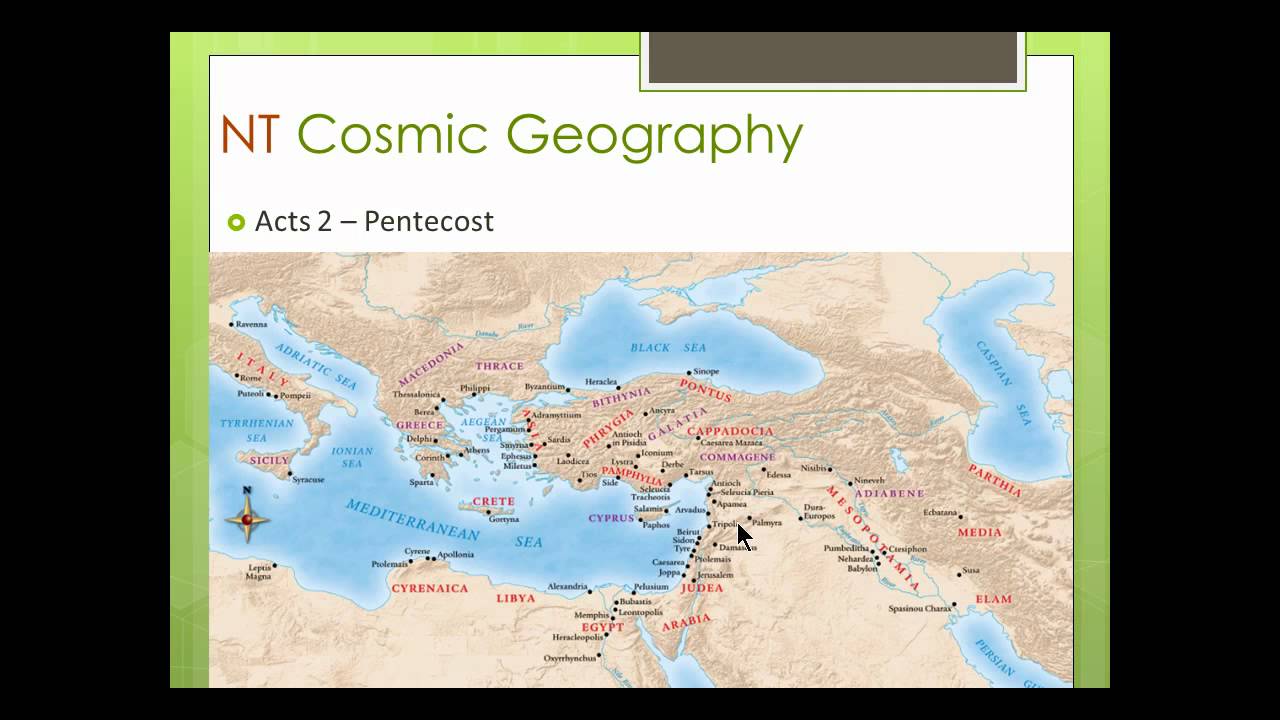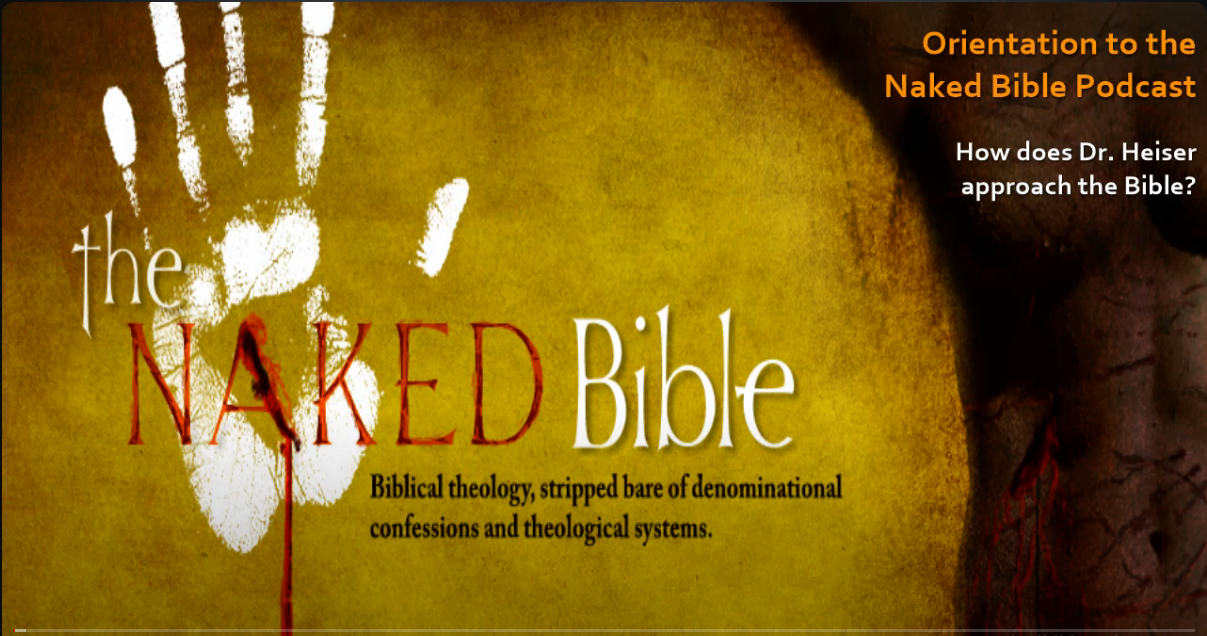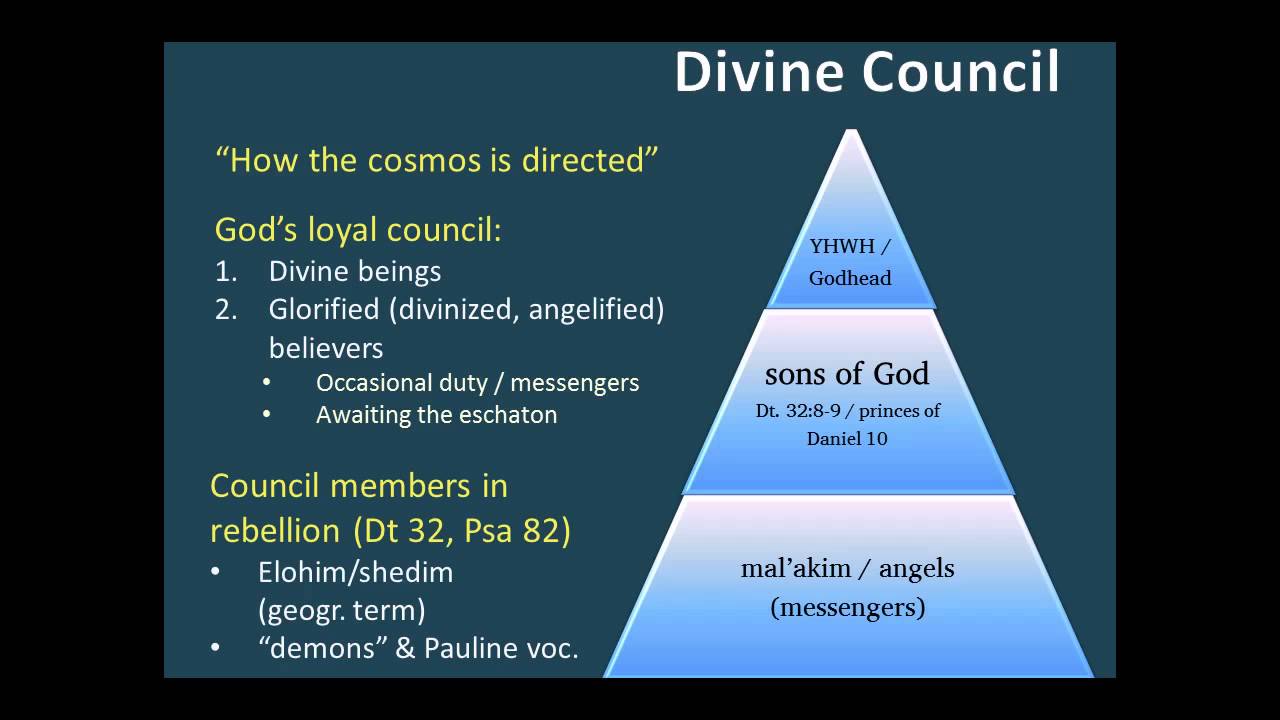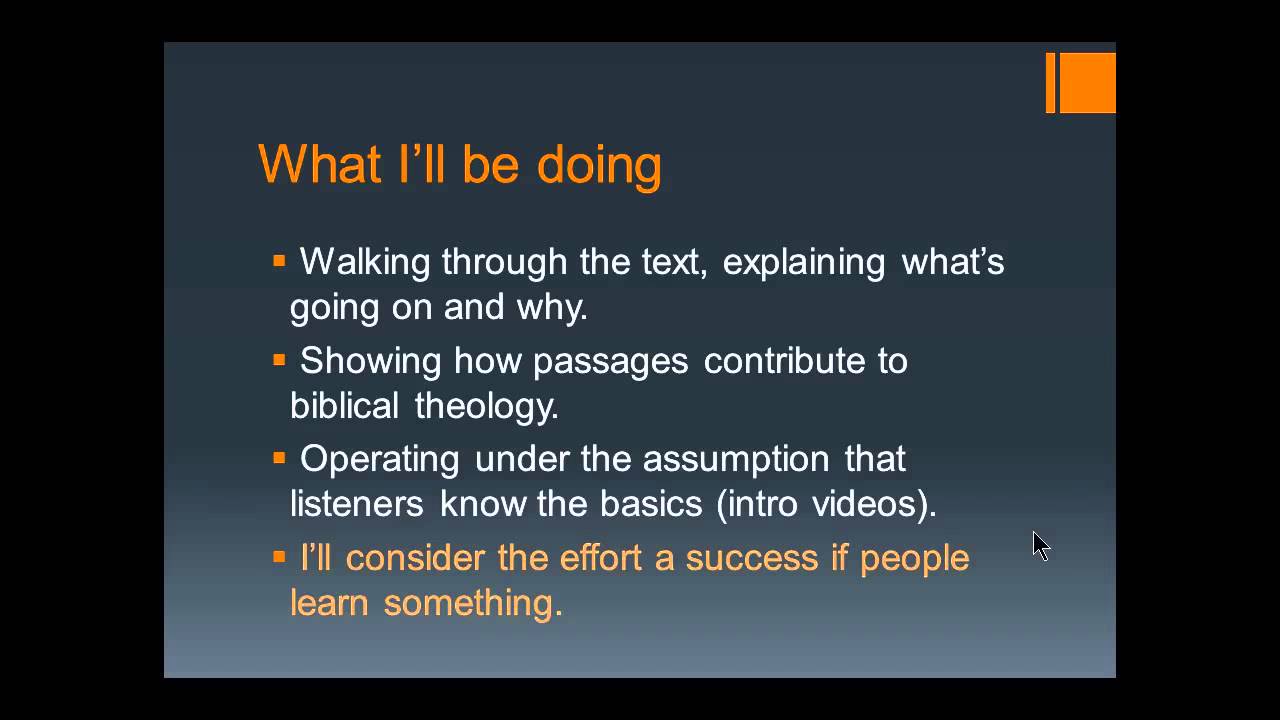
YOUTUBE & OTHER LINKS:
https://www.youtube.com/watch?v=zgwWP1WbeZA
https://nakedbiblepodcast.com/newstarthere/
SUMMARY:
Dr. Michael Heiser discusses his view of Scripture and inspiration, rejecting traditional misconceptions and emphasizing a providential process.
IDEAS:
- Inspiration is not a paranormal event or trance, but a providential process.
- Biblical writers were fully engaged, prepared by God for a specific occasion and agenda.
- Inspiration should be understood like canonicity - God working through human circumstances.
- The Bible was written for us today, but not to us - it was written to the original audience.
- The Bible is not a complete record of all truth and knowledge.
- There is content in the Bible that does not require direct divine revelation to write.
- There is evidence of editorial work in assembling the biblical books.
- The same events are presented with variations in wording between Gospels.
- Biblical writers used and quoted from various external sources.
- The Bible's content changes over time, like differences in Passover rules between Exodus and Deuteronomy.
- The Bible bears marks of ancient Near Eastern culture, like "sympathetic magic".
- God did not ordain Israelite culture, but chose writers in their own time and culture.
- The Bible uses ancient literary structures and genres common to the time.
- Some content reflects ancient "primitive" understandings of medicine, biology, and cosmology.
- A coherent view of inspiration must account for the actual content and phenomena in the Bible.
- Phrases like "law of Moses" or "psalms of David" don't necessarily mean sole authorship.
- The Bible is an ancient, culturally-situated, pre-scientific text with a supernatural worldview.
- God knew the limitations of the writers he chose and worked through the human element.
- We must distinguish between theological truth propositions and the ancient mode of expression.
- Stripping out the human element undermines the doctrine of inspiration.
INSIGHTS:
- Inspiration is a providential process, not a paranormal event overriding the human author.
- The Bible was written for us but not to us; it is anchored in its original ancient context.
- The Bible is not a complete repository of all knowledge; it has a focused theological purpose.
- The human and cultural element is inseparable from the doctrine of inspiration.
- Variations between biblical accounts point to the authentic human element in composition.
- Ancient science and cosmology in the Bible reflect the understanding of the original authors.
- God accommodated his message to the worldview and limitations of the ancient writers.
- Phrases implying authorship can have broader meanings than sole composition of every word.
- A high view of inspiration must embrace rather than deny the human situatedness of Scripture.
- Distinguishing the theological truths from ancient modes of expression is key to understanding inspiration.
QUOTES:
- "Inspiration is not a paranormal event. It is a providential process."
- "The Bible was written for us today in modern history, the 21st century, but it wasn't written to us."
- "The Bible doesn't talk about planets beyond Saturn. It doesn't talk about microwaves. It doesn't talk about toilet paper."
- "If you spend any time in a range of churches, you're gonna hear stuff like I just said I reject."
- "God made the choice to pick a certain person to write something down and used a variety of forces over the course of their life."
- "If the material is dictated, if it's channeled, what you're looking at just makes no sense."
- "God doesn't ordain a culture. He doesn't ordain a lower status for women."
- "The biblical books were produced competently, deliberately, intelligently, but it wasn't a mind dump in a paranormal event."
- "The seat of the emotions is not your intestines. It's not even your heart. We know that the seat of the emotions is actually brain activity."
- "Let the Bible be what it is. Resist the urge to make it what it isn't."
- "When you strip out the human element from inspiration, you undermine inspiration."
HABITS:
- Studying the Bible in its original ancient cultural and literary context
- Rejecting misconceptions about inspiration as paranormal dictation or a complete record of knowledge
- Recognizing the intelligent human element involved in the composition and editing of Scripture
- Distinguishing between timeless theological truths and culturally-situated ancient perspectives
- Embracing rather than denying the authentic human dimension in the doctrine of inspiration
- Resisting the urge to make the Bible into something it is not
- Letting the actual phenomena of Scripture shape our understanding of what it is
- Seeing God's providential oversight in the entire process of inspiring Scripture through real people
- Appreciating God's accommodation to the worldview and limitations of ancient writers
- Focusing on the theological "gift" of timeless truths, not just the ancient "wrapping"
FACTS:
- 90% of the content in the Gospel of John is distinct from the Synoptic Gospels.
- The superscription on Jesus' cross is presented with variations in all four Gospels.
- Luke acknowledges that there were other gospel accounts in circulation when he wrote his.
- Paul quotes pagan Greek poets, and Jude quotes from the non-canonical book of Enoch.
- Some of the Psalms borrow language and imagery from Canaanite literature like the Baal Cycle.
- The Passover regulations in Exodus 12 differ in some details from those in Deuteronomy 16.
- Laws concerning slaves joining an Israelite household differ between Exodus 21 and Deuteronomy 15.
- Ancient Near Eastern concepts like "sympathetic magic" are reflected in some biblical stories.
- The Old Testament reflects a pre-scientific view of the sky as a solid dome and the heart/gut as the seat of intellect and emotion.
- Ancient Israelite culture was an adaptation of broader ancient Near Eastern culture, not a unique divine revelation.
REFERENCES:
- The book of Enoch (quoted by Jude)
- Ancient Near Eastern wisdom literature (like Amenemope, compared to Proverbs)
- The Baal Cycle (Canaanite mythology alluded to in the Psalms)
- Other ancient "gospels" and accounts of Jesus (acknowledged by Luke)
- Greek poets (quoted by Paul)
- The book of Jashar (quoted in the Old Testament)
- Ancient Near Eastern legal texts and covenants (similar in structure to biblical covenants)
- Ancient Near Eastern cosmological texts (reflecting similar views to biblical cosmology)
ONE-SENTENCE TAKEAWAY:
The doctrine of inspiration must embrace the Bible's authentic human element and ancient context.
RECOMMENDATIONS:
- Study the Bible in its original ancient Near Eastern and Mediterranean cultural context.
- Recognize the human element in Scripture as a feature of inspiration, not a bug.
- Distinguish between the Bible's theological truths and its ancient mode of cultural expression.
- Reject misconceptions of inspiration that deny or override the human dimension of Scripture.
- Let the actual phenomena of the biblical text shape your understanding of what it is.
- Appreciate God's accommodation to the worldview and limitations of the ancient writers he chose.
- Focus on the Bible's theological "gift" of timeless truths, not just the ancient "wrapping".
- See inspiration as a providential process, not a paranormal event of dictation or complete knowledge.
- Allow for complexity and variation in how the Bible presents people, events and teachings.
- Embrace the Bible for what it is, not what modern assumptions want it to be.
ORIGINAL DOCUMENT NAME:
zgwWP1WbeZA-ZgkzafltlKIa-claude-3-opus-20240229



